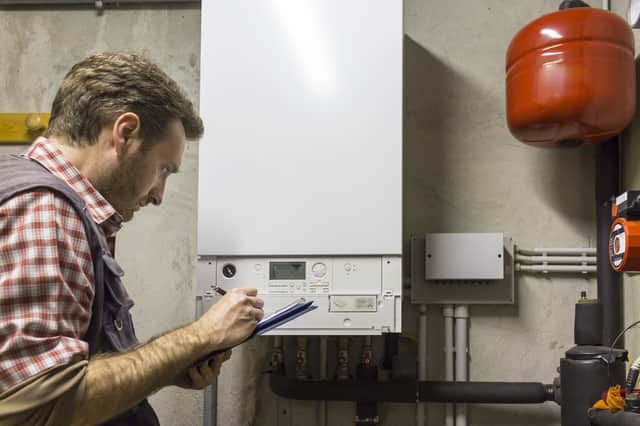Your insurance may not cover you if your boiler breaks down - here's what you need to know


Only a fifth of standard home contents insurance policies include cover for home emergencies like boiler breakdowns, according to new research.
Analysis by financial data firm Defaqto also revealed that buildings insurance doesn’t offer much of an alternative either, with only a quarter of the 371 policies currently on the market providing cover for home emergencies as standard.
Advertisement
Hide AdAdvertisement
Hide AdHomeowners have been urged to check their policies to make sure they are not caught out this winter, as temperatures across the UK plummet.
‘A nasty shock’
Brian Brown, Consumer Finance Expert at Defaqto, warned customers that “modern boilers are expensive and the cost of having to replace one can be a nasty shock.
“If you don’t have the funds to pay for this, then a boiler breakdown policy that includes boiler replacement could be a good option for you.
“Homeowners looking for a more comprehensive cover may find a home emergency policy provides greater comfort. However, the extent of cover can be limited. So it’s always worth checking the market to find a policy that’s right for your circumstances.”
How to protect yourself
Top tips to avoid a nasty bill this winter:
Advertisement
Hide AdAdvertisement
Hide AdCheck what cover you already have with your home insurance policy.Check for any exclusions, such as the age or power output of the boiler and whether it needs to be regularly serviced or inspected.If you bought your boiler within the last few years, check what cover the manufacturer gives as standard under the warranty, and check for any exclusions.If you have a heating system that is powered by an electric boiler, solar or solid fuel, check whether your policy includes cover for this as many do not.
The Association of British Insurers has advised homeowners on what to do to help keep their home warm this winter, including how to prevent pipes from freezing:
Keep your heating on at regular intervals and make sure to set it on a timer if you’re going away.Make sure that you know where your stopcock that turns off the incoming water supply is, and make sure that it works.Repair any dripping taps. This will help prevent water from freezing.
If your pipes do freeze:
Turn the water off at the main stopcock straight away and then wait for it to warm up or you can try and thaw the pipes with a hot water bottle.If a pipe has burst, turn off the water at the stopcock. Switch off your central heating and any other water heating installations. Open all taps to drain the system.Contact your insurance company helpline for help and advice, including arranging for professional repairs to be carried out.Finally, be prepared and make sure you have the emergency contact details for your insurance provider or emergency plumber should you need them.